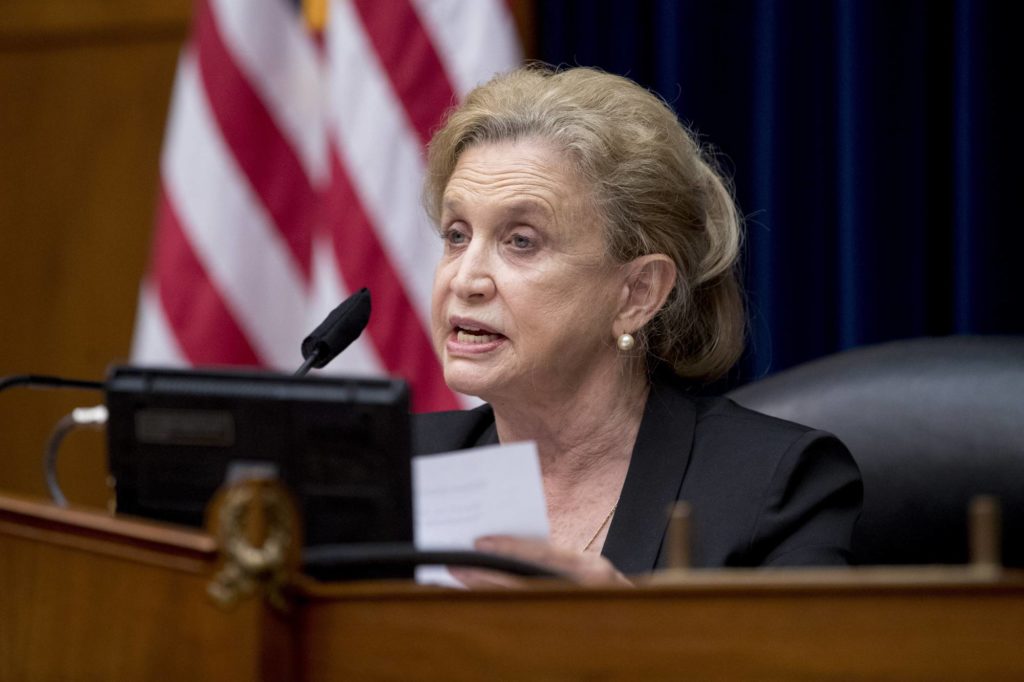
Three House committee chairmen are renewing their effort to expand paid leave for federal employees, this time to include time off for medical and family reasons.
House Oversight and Reform Committee Chairman Carolyn Maloney (D-N.Y.) on Thursday introduced the Comprehensive Paid Leave for Federal Employees Act, which provides up to 12 weeks of paid time off to care for a sick spouse, child or parent or for an employee’s own personnel medical condition.
The new legislation covers the vast majority of federal employees, including Postal Service workers, who aren’t part of the original paid parental leave program Congress established nearly a year ago.
But like the parental leave program, employees must work at least 12 months at a federal agency in order to be eligible for family leave.
Federal employees currently have up to 12 weeks of unpaid leave under the Family and Medical Leave Act. But under this new bill, employees could use up to 12 weeks of leave for any combination of reasons and get paid for the time off.
Employees wouldn’t have to exhaust their annual leave in order to use this new paid family leave, according to the legislation. Employees should provide at least 30 days notice of their intent to take family or medical leave, or as soon as possible if it’s for an emergency.
Agencies would pay for the leave through their annual appropriations or funds made available to them for salaries and expenses.
House Appropriations Committee Chairman Rosa DeLauro (D-Conn.) and Armed Services Committee Chairman Adam Smith (D-Wash.) both joined Maloney in sponsoring the new paid leave bill.
“I was very pleased that we were able to get paid parental leave passed a couple years ago … and that’s incredibly helpful,” Smith told reporters Thursday. “But as we all know, family emergencies come at us in more than just when you’re having or adopting a child.”
Maloney was also the lead sponsor of the Federal Employee Paid Leave Act, which Congress passed in late 2019 with the annual defense authorization bill.
That bill granted most federal employees up to 12 weeks of paid parental leave for the birth, foster placement or adoption of a new child. The program kicked in for most federal employees last October, and Congress expanded it to include the vast majority of the workforce earlier this year.
The bill that ultimately led to 2019’s victory initially called for 12 weeks of paid leave, which federal employees could use for both the birth of a new child or for medical purposes.
But the 2019 law didn’t allow federal employees to use the leave for family or medical reasons, and House Democrats and federal employee groups vowed to close the gap with another piece of legislation.
“The truth is that many of us will have to deal with a family illness, or will have to care for one of our aging relatives or will need medical leave ourselves,” said Maloney, who’s been advocating for paid leave for federal employees for at least 20 years. “This is not anything you can plan, but these are situations we should be able to take care of without fear of losing a job or missing a paycheck.”
Calvin Harris, an employee with the Food and Nutrition Service in Chicago, said paid medical leave would have been helpful to him last year. He had a kidney transplant, and he quickly burned through his paid sick and annual leave while he stayed home to recover for eight weeks.
House Majority Leader Steny Hoyer (D-Md.), as well as Reps. Gerry Connolly and Don Beyer (D-Va.), Jackie Speier (D-Calif.) and D.C. Del. Eleanor Holmes Norton, are also co-sponsors.
Many private sector employers already provide paid family and medical leave, and as the nation’s largest employer, the federal government needs to keep pace, Connolly said.
“We have a recruitment and retention problem,” he said. “The baby boomer generation is ready to retire, and 31% of the federal workforce is eligible to retire next year. We’re going to have a talent and recruitment challenge, and if we’re not providing the kinds of benefits that are available in counterpart private sector entities, we’re going to have a lot of problems recruiting the workforce of the future in the federal government.”
Brian Schatz (D-Hawaii) is planning to introduce a Senate companion, a House aide said.
